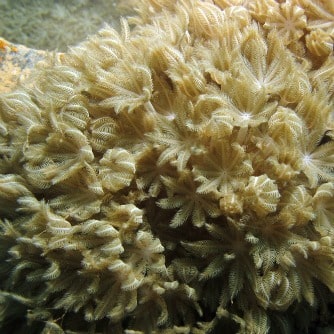Researchers have discovered a new class of proteins capable of blocking the HIV virus from penetrating T-cells, raising hope that the proteins could be adapted for use in gels or sexual lubricants to provide a potent barrier against HIV infection. The proteins, called cnidarins, were found in a feathery coral collected in waters off Australia’s northern coast. Barry O’Keefe, from the Molecular Targets Laboratory at the National Cancer Institute’s Center for Cancer Research, and colleagues purified the cnidarin proteins, then tested their activity against laboratory strains of HIV. The proteins proved astonishingly potent, capable of blocking HIV at concentrations of a billionth of a gram by preventing the first step in HIV transmission, in which the virus must enter the T-cell, a key type of immune cell. The study authors are hopeful that cnidarins could be utilized in anti-HIV microbiocides, because the proteins appear to block HIV transmission without encouraging the virus to become resistant to other HIV drugs.
Coral Reefs Home to Potent Anti-HIV Protein
Sztuba-Solinska J, Shenoy S, Gareiss P, Krumpe LR, Le Grice S, O'Keefe B, Schneekloth Jr JS. “Identification of Biologically Active, HIV TAR RNA-Binding Small Molecules Using Small Molecule Microarrays.” J Am Chem Soc. 2014 May 12.
RELATED ARTICLES




